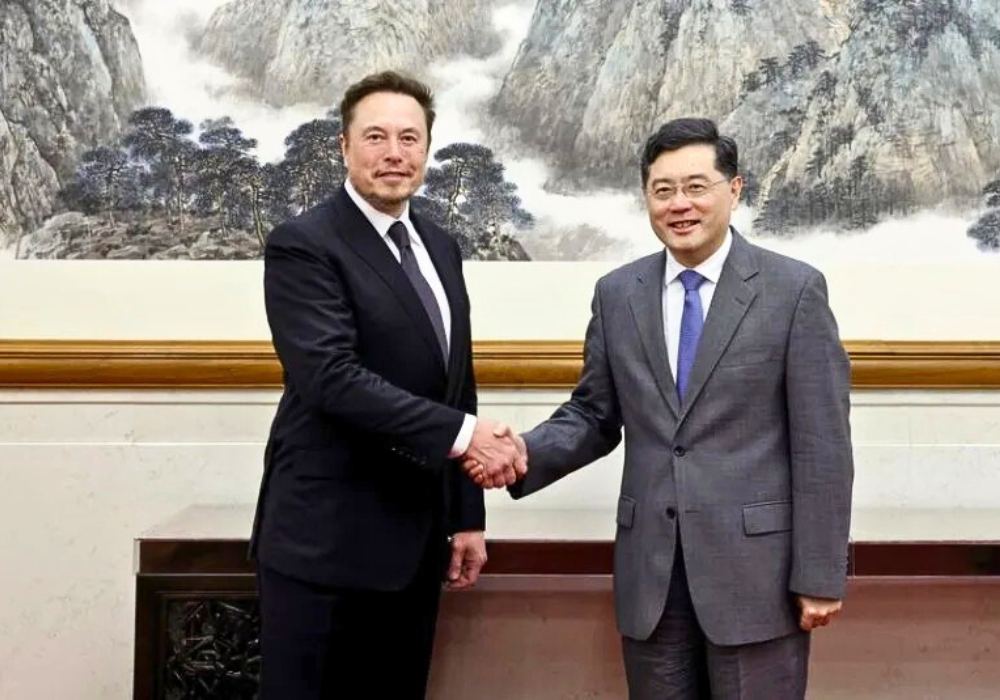
The tests, which began in November 2023, assessed whether the cars met specific compliance requirements related to data security, including the anonymization of certain types of data and the non-collection of in-car data by default.
Tesla has localized data storage in Shanghai and passed the ISO 27001 international standard for information security.
Tesla's locally produced models, such as the Model 3 and Model Y, have been listed among the EVs that meet China's data security requirements for smart cars, which is a key regulatory hurdle cleared.
Tesla's inclusion in the list of approved vehicles is significant as it faced stiff competition from local rivals and had previously encountered entry bans in government-affiliated buildings and military bases over security concerns. This approval is expected to bolster Tesla's presence in its second-biggest market, following the United States.
Elon Musk's visit to Beijing was quite eventful and strategic for Tesla's operations in China. Musk's visit was unannounced and came after he cancelled a planned trip to India.
During his visit, Musk met with Chinese Premier Li Qiang. The trip was significant as it involved discussions about Tesla's compliance with China's data security regulations.
Musk expanded Tesla’s partnership with Baidu, although the long-term benefits of this move are still under scrutiny. There were expectations raised that Tesla's Full Self-Driving software would soon be available in China.
Tesla has worked to ensure its vehicles comply with China's strict data security laws. This includes adjustments in how personal data is collected and processed, such as anonymizing recordings of faces outside the car.
Tesla is promoting its FSD features in China, which, although not making the cars fully autonomous, offer advanced assisted driving capabilities under driver supervision
Musk's China visit underscores the importance of the Chinese market for Tesla and highlights the company's efforts to navigate the regulatory landscape of data security in China. It also reflects the ongoing negotiations and partnerships that are crucial for Tesla's success in the region.
Tesla has modified its charging ports to conform to local standards, allowing Tesla owners in China to plug into stations operated by other service providers. Additionally, Tesla has opened select Superchargers in Beijing and Shanghai to other EV brands, which is part of a pilot project.
These adaptations reflect Tesla's commitment to the Chinese market and its efforts to stay competitive amid growing market share from domestic automakers. By aligning with local regulations and preferences, Tesla aims to maintain its position as one of the best-selling EV brands in China.
















 IndianWeb2.com is an independent digital media platform for business, entrepreneurship, science, technology, startups, gadgets and climate change news & reviews.
IndianWeb2.com is an independent digital media platform for business, entrepreneurship, science, technology, startups, gadgets and climate change news & reviews.



